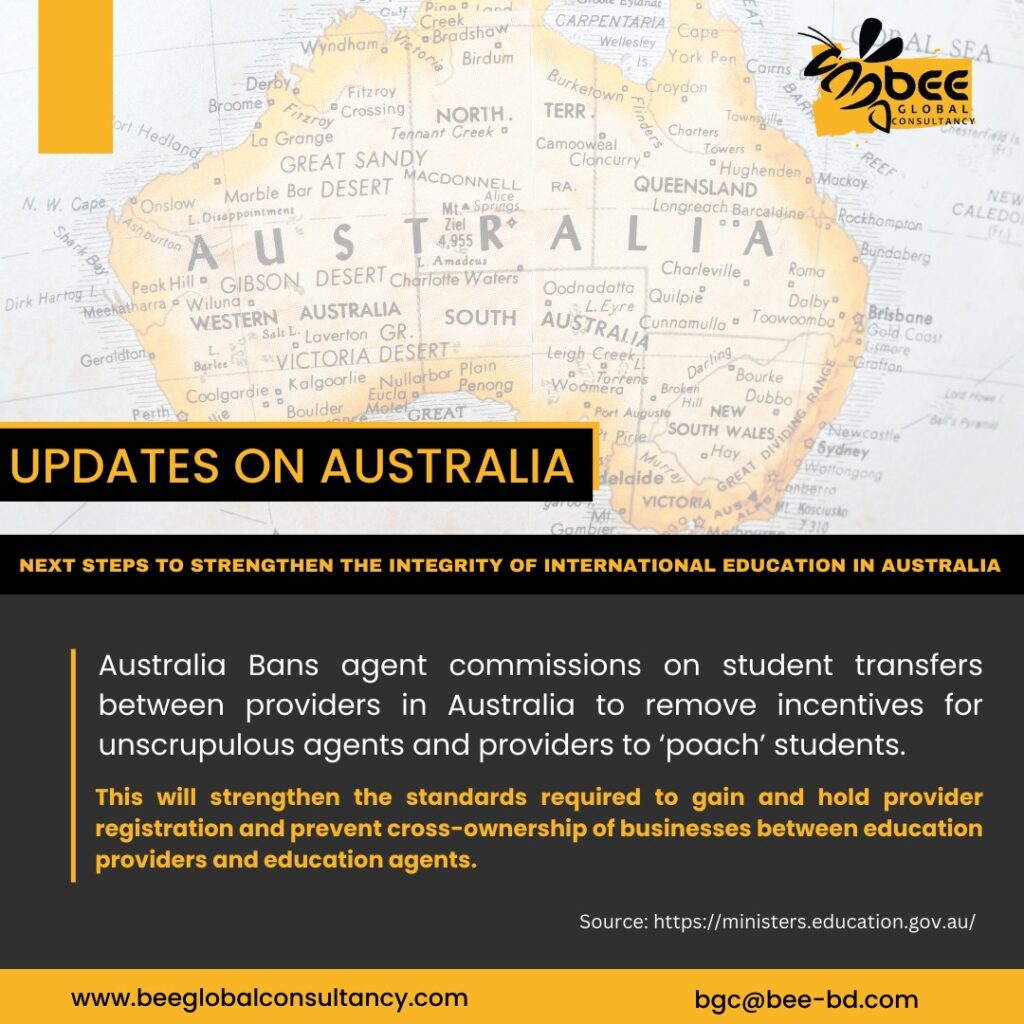In a significant development aimed at safeguarding the integrity of Australia’s international education system, the government has implemented measures to address concerns related to unethical practices among student agents and cross-ownership of businesses in the education sector. The move comes as international students return to Australia and is a response to the need for increased monitoring and compliance, as identified in the Nixon Review.
Education Minister Jason Clare announced these measures, emphasizing the country’s commitment to providing high-quality education to international students. The new framework will introduce “risk indicators” to monitor various aspects, including student attendance, agent performance data, and visa rejection rates. This will help identify and prevent issues like students transferring to cheaper colleges, including “ghost colleges.”
One key aspect of these measures is the tightening of standards required for education provider registration, preventing cross-ownership of businesses by education agencies and providers. Minister Clare stated, “International students are back, but so are the shonks seeking to exploit them and undermine our international education system.”
The government has also signaled its intention to crack down on unethical practices in the international education sector further, with more announcements expected in the coming days. Minister for Home Affairs Clare O’Neil emphasized that the era of loopholes and rorts in the system is coming to an end.
These measures have been welcomed by organizations such as AAERI (Association of Australian Education Representatives in India), representing professional agencies in India that facilitate student placements in Australia. President Nishidhar Borra praised the steps taken by authorities, highlighting the collaborative efforts of agents and institutes to promote Australia and assist students with their educational journeys.
Ravi Lochan Singh, owner of the major agency Global Reach in India, also supported the move and stressed the need to curb onshore poaching of students, where students switch to subpar institutions facilitated by onshore migration agents after arriving in Australia.
These actions build upon earlier initiatives to close the “concurrent visa” loophole and address issues raised in the Nixon Review. The review also includes recommendations related to Registered Migration Agents (RMAs), suggesting comprehensive background checks, increased investigative powers for registration authorities, and higher penalties for misconduct.
Former police commissioner Christine Nixon’s recommendations focus on private vocational colleges, suggesting targeted compliance activities and monitoring non-attendance reporting. Furthermore, there is consideration of extending registration requirements to offshore migration agents and implementing regulatory measures.
While the government’s announcement “prohibits agent commissions on student transfers,” it is important to note that this specifically addresses unethical practices and not all onshore agent commissions.
Yini Reptis of AMET Education commended the move to protect students from unscrupulous agents but highlighted the value provided by quality onshore agents who offer essential services to international students, including university degree advice and admission support for high school international students and assistance for working holiday visa holders looking to transition to student visas onshore after their WHV stay in Australia.
In conclusion, Australia’s proactive measures seek to uphold the reputation of its international education system while ensuring that international students receive the support and quality education they deserve.
Read More:
https://ministers.education.gov.au/clare/next-steps-strengthen-integrity-international-education
Australia bans commission for onshore switching and targets cross-ownership
https://www.afr.com/policy/health-and-education/commissions-banned-students-monitored-under-visa-fraud-crackdown-20231001-p5e8vm



